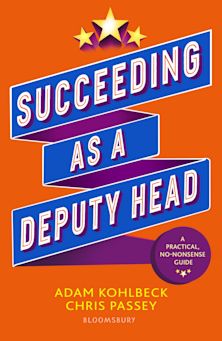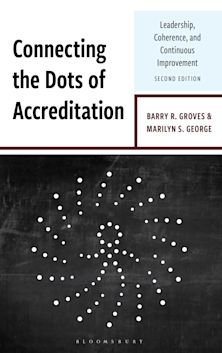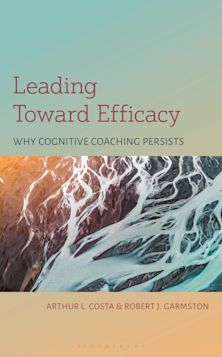- Home
- ACADEMIC
- Education
- Leadership and Management
- The Social Scientist as Public Intellectual
The Social Scientist as Public Intellectual
Critical Reflections in a Changing World
- Textbook
The Social Scientist as Public Intellectual
Critical Reflections in a Changing World
- Textbook
Inspection copy added to basket
This title is available for inspection copy requests.
Please note our inspection copies are only available in ebook format, and are fulfilled by VitalSource™. If an ebook isn’t available, please visit our inspection copy page for more information.
Buy from Bloomsbury eTextBooks
You are now leaving the Bloomsbury Publishing website. Your eBook purchase will be with our partner https://www.vitalsource.com.
Your credit card statement will show this purchase originating from VitalSource Technologies. They will also provide any technical assistance you might require.
You must sign in to add this item to your wishlist. Please sign in or create an account
Description
What is the role of the social scientist in public affairs? How have changes in the structure of the university system and the culture of academia reshaped the opportunities and constraints facing contemporary scholars? The Social Scientist as Public Intellectual addresses these and other questions by reviewing the ideas of seminal thinkers in Europe and the United States, and relating their conclusions to today's world. In this book, Charles Gattone examines the analyses of Max Weber, Thorstein Veblen, Karl Mannheim, Joseph Schumpeter, C. Wright Mills, John Kenneth Galbraith, and Pierre Bourdieu, tracing their perspectives through two World wars, the Cold War, and into the present. Gattone situates the ideas of these authors in historical context, showing the ways the realities of their time - fascism , totalitarianism, the rise of bureaucratic institutions, and the expansion of industrial democracy - informed their assessments regarding the place of the intellectual in the political realm. He brings their work into the current context, addressing the difficulties involved in bridging the gap between the ideas of scholarly inquiry and the practical realities of politics, and examining the ways newer factors such as the mass media relate to the character and trajectories of popular sentiment. Gattone argues that although political and economic institutions continue to influence the course of academic knowledge, opportunities remain for social scientists to act independently and develop insight that can ultimately be of value to a wide spectrum of the population in the modern order. Rather than follow the habit of striving to satisfy the narrow demands of institutional supporters, Gattone suggests that social scientists have the potential to approach their work from the standpoint of a broader orientation, and address social issues as public intellectuals.
Table of Contents
2 Knowledge and Politics in Early Modern Social Thought: Auguste Comte and Henri deRouvroy Saint-Simon
3 Max Weber: Social Science and Politics in the Transition to State Capitalism
4 Thorstein Veblen: The Social Scientist as Innovative Thinker
5 Karl Mannheim and Joseph Schumpeter: Social Science, Intellectuals, and Politics in an Age of Declining Liberalism
6 C. Wright Mills and John Kenneth Galbraith: Institutions, Social Science, and the Role of Intellectuals in the New Industrial State
7 Pierre Bourdieu: Intellectuals, Symbolic Power, and Social Change
Product details
| Published | 14 Mar 2006 |
|---|---|
| Format | Ebook (Epub & Mobi) |
| Edition | 1st |
| Extent | 176 |
| ISBN | 9781461645641 |
| Imprint | Rowman & Littlefield |
| Publisher | Bloomsbury Publishing |
About the contributors
Reviews
-
Innovatively and insightfully, Gattone demonstrates that the social scientist's role as a public intellectual has been problematized for centuries. Mining ideas of early savants like Weber and Veblen, he presses forward to recent sociologists like Mills and Bourdieu, all expert examiners of the often-tortured relationships of social scientists to policymakers in eras of increasing bureaucratization. Generally handicapped by enshrining bureaucracies, social scientists at their best do step outside and debunk old societal myths, provide new social knowledge, and shed bright light on regressive cultural practices. An illuminating book with many uses...
Joe R. Feagin, Texas A&M University
-
All the chapters are intriguing and well documented. This book stands out for the quality of the overview it offers of the reflections of prominent social scientists on the role of their profession in society. The clarity of Gattone's synthesis also makes this book stand out as an excellent text for readers who are new to the social sciences.
American Journal of Sociology
-
Explores what it means to be a public intellectual in the social sciences and how this relates to social research through a study of several famous academics. Discusses knowledge and politics in early modern social thought.
Journal of Economic Literature
-
Gattone's arguments seem reasonable and optimistic, without ever overstating the possibilities for sociology in the public realm. Moreover, he is careful to highlight disagreements and divisions concerning the place of personal values in research and how this fundamentally determines differing constructions of the 'public sociologist'. In this sense, this is a text that displays a rich understanding of the ethical dimensions that are involved in public engagement and are at the core of all sociological research.
Sage: British Sociological Association
-
The Social Scientist as Public Intellectual presents an original analysis of a unique group of thinkers on a largely ignored topic. Because of its novel combination of parts?connecting sociological theory and sociology of science to address the widely discussed but under theorized topic of the public intellectual?Charles Gattone's book is a significant contribution to the field of sociology. Many graduate students and established scholars seek to change the world through their sociology, and this book provides guidance on how that can be done: it's a meta-theoretical guidebook on becoming a public intellectual...
Professor Tim Kubal, California State University
-
The Social Scientist as Public Intellectual presents an original analysis of a unique group of thinkers on a largely ignored topic. Because of its novel combination of parts-connecting sociological theory and sociology of science to address the widely discussed but under theorized topic of the public intellectual-Charles Gattone's book is a significant contribution to the field of sociology. Many graduate students and established scholars seek to change the world through their sociology, and this book provides guidance on how that can be done: it's a meta-theoretical guidebook on becoming a public intellectual.
Professor Tim Kubal, California State University



































